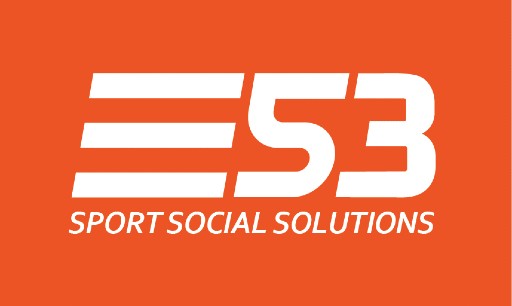Public spaces are meant to bring people together, but what if the very places meant for connection feel uninviting or even unsafe? Across the Balkans, young people are speaking up, eager to shape public spaces that truly reflect their needs and dreams. Their voices paint a vivid picture of both the challenges they face and the solutions they’re ready to implement.
Public spaces are vital for communities, offering young people areas to connect, play, and engage in civic life. Yet, these spaces need to be designed thoughtfully to meet the diverse needs of youth. In focus groups held in North Macedonia, Serbia, Romania, Croatia, Greece, and Bulgaria, 200+ young people shared their experiences and ideas for improving public spaces. Their voices reveal what makes a place feel safe and welcoming—or, conversely, off-limits. By understanding their perspectives on safety, access, and community involvement, we can work toward creating spaces where they truly feel a sense of belonging. In the below text we share the key themes shared during the focus groups with our young partners.
Youth Profiles and Settings
The discussions brought together a diverse group of young people, from university students in Greece to rural youth in Bulgaria, from refugees in Romania to youth girl groups in North Macedonia. In Athens and Thessaloniki, urban planning students and sports club members shared their visions for better public areas. In Kazanlak and Plovdiv, young participants—including some who had never joined a civic initiative before—offered fresh ideas about how public spaces could be improved. Serbian focus groups were held in big cities in the country, such as Belgrade, Novi Sad and Raska. In Romania the focus groups involved refugees and youth from the region of Suceava. This variety of backgrounds enriched the conversation, showing how each setting shapes youth priorities.
Perceptions of Safety in Public Spaces
Safety was a recurring concern. In Skopje, North Macedonia, poorly lit and uneven areas left many feeling uneasy, particularly after dark. Young women in Greece described how public spaces dominated by men felt intimidating, while in Belgrade, some youth felt more secure in well-maintained zones like Novi Sad but raised alarms about less safe parts of the city. Croatian youth in Pula avoided public areas at night, and in Bulgaria, one in three participants reported feeling unsafe, especially in poorly lit outskirts. Generally, it is worth noting the differences between how girls and boys perceive safety in public spaces. The shared message? Simple measures like better lighting and clear sightlines could transform these spaces into places where everyone feels welcome.
Civic Participation and Barriers
When asked about their role in shaping public spaces, responses varied. Youth in North Macedonia felt their voices often fell on deaf ears, and Serbian participants described the difficulty of engaging in meaningful civic projects. Still, there were hopeful signs: Romanian youth were eager to get involved, suggesting specific ways they could help transform community spaces. In Bulgaria, despite facing challenges like unequal access, many young people expressed optimism about making a difference. Greek participants began the sessions feeling hesitant but grew more engaged, showing that a supportive atmosphere can empower youth to act. A major learning here is that creating supportive and responsive environments significantly influences youth engagement and youth commitment to civic initiatives.
Desired Improvements in Public Spaces
Youth across the Balkans had plenty of ideas for better public spaces. North Macedonian participants wanted amenities like water fountains near playgrounds. Serbian youth emphasized the need for greenery and inviting areas to hang out. Croatians called for multifunctional spaces that cater to both recreation and relaxation. In Bulgaria, young people pushed for eco-friendly features, more bicycle lanes, and sports facilities. Greek youth envisioned community gardens, public art, and more shaded seating areas. The ideas were practical and forward-thinking, pointing to a shared desire for environments that are safe, sustainable, and engaging, as well as nature oriented. Youth across the Balkans envision public spaces that are not only safe and inclusive but also environmentally sustainable and multifunctional. Their practical and forward-thinking ideas reflect a strong, unified desire for spaces that foster social interaction, promote healthy lifestyles, and respect the environment.
Challenges in Access and Maintenance
Broken equipment, litter, and lack of upkeep were common complaints. In Serbia and North Macedonia, public spaces often felt neglected, while in Croatia, underused areas were in desperate need of revitalization. Greek participants mentioned problems like illegal parking blocking walkways, and Bulgarian youth highlighted the lack of infrastructure in remote areas, making it hard for some to reach central youth-friendly spaces. The message was clear: public spaces need regular maintenance, better accessibility, and a sense of ownership shared by both institutions and communities.
To sum up – the focus groups revealed that, despite the challenges, young people across the Balkans are eager to improve their public spaces. Their concerns—ranging from safety and accessibility to maintenance—show a clear need for action. But their ideas also offer a hopeful path forward. Investing in youth-driven solutions and inviting their input not only enhances public spaces but also strengthens the fabric of our communities. The next generation is ready to lead the way in creating welcoming, vibrant spaces where everyone feels they belong.
Initiated by BG Be Active and backed by dedicated partner organizations from five Balkan countries, Youth Placemaking Balkans is a youth movement designed to improve youth entrepreneurship and active citizenship in the democratic processes by providing them with the relevant civic skills through creating inclusive and engaging spaces for and by young people.
Reach out to us today to discover how you can contribute to the project, participate in our activities, or get answers to any questions you may have. Together, we are “Empowering Youth, Transforming Spaces: Uniting for Better Balkans.”
